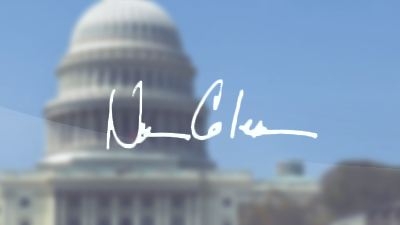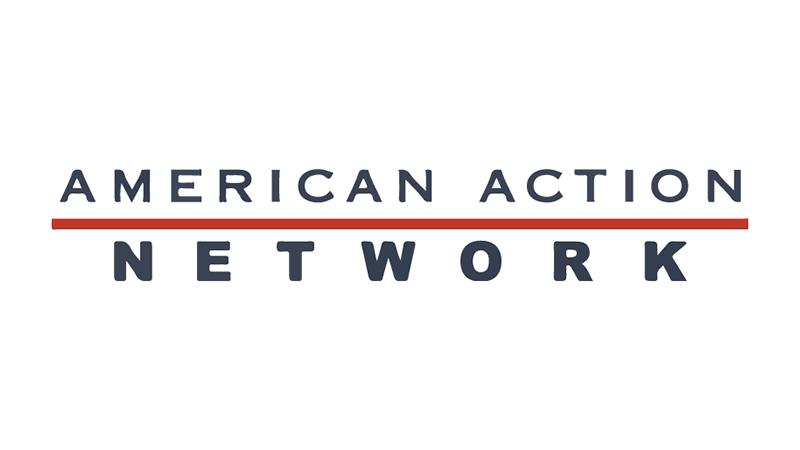Note From Norm: Win the War Against Poverty with a different battle plan
As Speaker of the House Paul Ryan begins his last year in Office, it’s important to recognize him for the big and high-profile things he’s done – passage of the first massive tax cut and tax reform law in nearly 40 years – but also the big and low-profile things that don’t capture the day-to day headlines.
One of those efforts is close to Ryan’s heart and is an issue he has been passionate about for decades. So much so that in 2016 he unveiled a series of proposals that he hoped would make up the basis of the GOP controlled House policy initiatives over the next few years.
At the forefront of those initiatives was a commitment to combat poverty.
Called “A Better Way Forward: Our Vision for a Confident America.” the report began with this paragraph:
“The American Dream is the idea that, no matter who you are or where you come from, if you work hard and give it your all, you will succeed. But for too many people today, that’s simply not true. Thirty-four percent of Americans raised in the bottom fifth of the income scale are still stuck there as adults. In fact, the rates at which people move up the ladder of opportunity have stayed remarkably stable over the past several generations. In that sense, Americans are no better off today than they were before the War on Poverty began in 1964.”
In 2014 the Heritage Foundation estimated that $22 trillion have been spent fighting “The War on Poverty.”
In the same year the CATO Institute estimated it was nearly $19 trillion.
The poverty rate in 1964 was 19%. Today, it stands at about 13%.
After nearly 55 years one would have hoped for not just greater reduction in poverty, but, that we would have figured out how to prevent it.
After all, it was President Lyndon Johnson who, in 1964, in calling for a War on Poverty declared, “Our aim is not only to relieve the symptom of poverty, but to cure it and, above all, to prevent it”
LBJ actually planned to reduce, not increase, welfare dependence. He declared, “We want to give the forgotten fifth of our people opportunity not doles.”
Unfortunately, what LBJ wanted to accomplish, and what has actually been accomplished, are two different realities.
While government spending on welfare programs increased so, too, did dependency on these programs.
A new culture of welfare dependency grew up around the notion that work and self-sufficiency were no longer the primary tools of getting out of poverty – it was the lifeline of a government program.
Today, there are over 80 federal government programs, spending nearly $1 trillion each year, that are intended to be fighting poverty.
It’s time to take a different look at how we combat poverty in America and, in turn, achieve LBJ’s true goal which was to prevent it from happening at all in America.
Earlier this month Speaker Ryan went to Fort Worth, Texas. As part of his trip he stopped by Catholic Charities of Fort Worth to learn about that organization’s success in working to address issues of poverty.
What he learned is something I learned many years ago as Mayor of St. Paul and working closely with Catholic Charities.
When you allow the non-profit sector to take the lead in dealing with societies most difficult challenges you are more likely to see success than if you have the federal government take the lead.
The individualistic approach that non-profits, such as Catholic Charities, take in develop strategies and tactics for success for those in poverty, and in helping others avoid it, underscore the need to reassess our approach to human services in America.
As Ryan pointed out in Fort Worth, “The federal government’s poverty fighting [approach] is basically described as this: ‘You’re stuck in your current station in life. The government’s here to help you cope with it and stay where you are…”
Ryan doesn’t call for massive reductions in spending on programs to assist poor Americans.
On the contrary, Ryan has made it clear that “…he would consolidate most of the federal poverty programs, direct much of the work to local charities and develop a way to measure which programs are the most successful.”
An approach echoed by Heather Reynolds, President and CEO of Catholic Charities in Fort Worth, Texas who wrote to Ryan in 2016 to say:
“I firmly believe that government-run poverty programs are not the answer. The answer is to allow the right non-profits to tailor help based on needs…Government’s most useful role is in directing resources our way, to non-profits with proven success, to provide the services that we know work to get people out of poverty for good.”
Nothing in Washington, D.C. moves very fast despite the best intentions of those, including Ryan, to move quickly to address issues such as poverty.
It took 55 years to create the modern-day welfare system that America’s poor and underprivileged languish in today.
As Paul Ryan’s Congressional career comes to a close we can be grateful for his leadership throughout the years.
He has never been shy about stepping up and being heard on issues that he believed had the potential to life the human spirit in America.
I know that in the months ahead he will continue to look to how we can better direct the $1 trillion in federal spending from government bureaucrats in Washington to those in the non-profit and private sector who are battling poverty on the front lines in American cities.
I am even more confident that outside of government Paul Ryan will remain committed to not only winning the battles against poverty but winning the War on Poverty by preventing it from happening in the first place.


